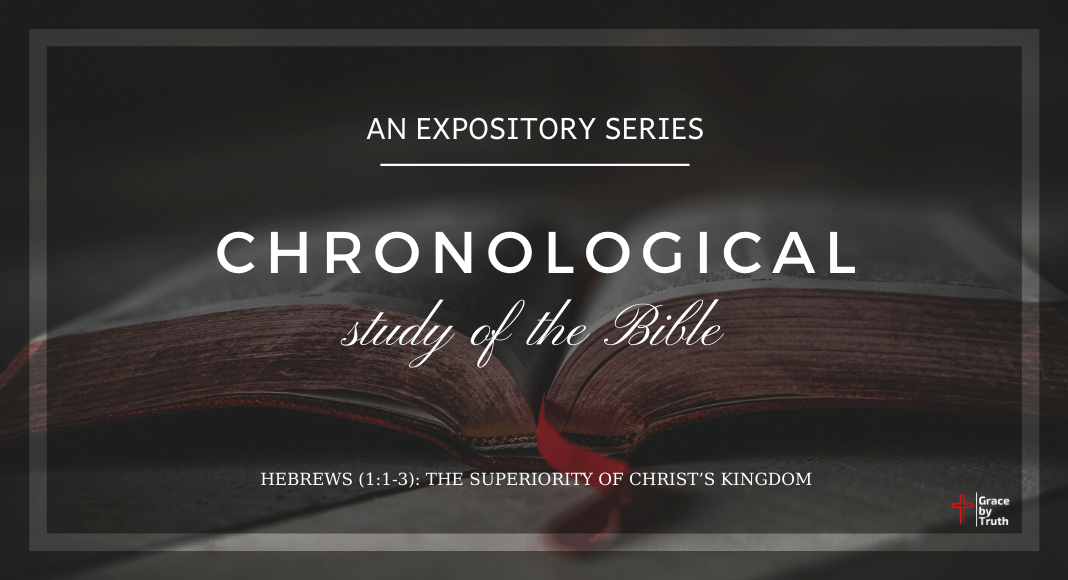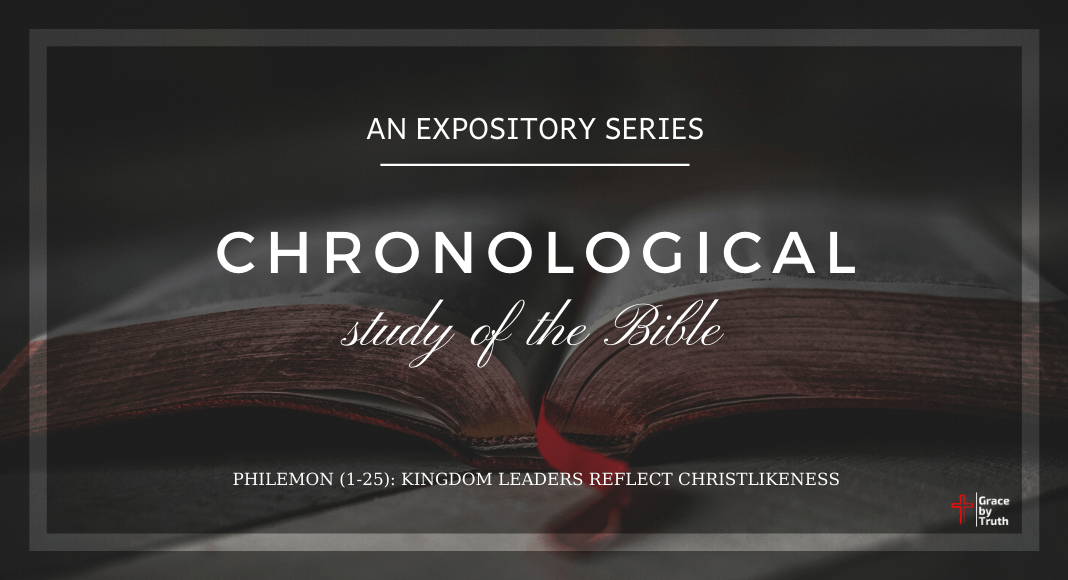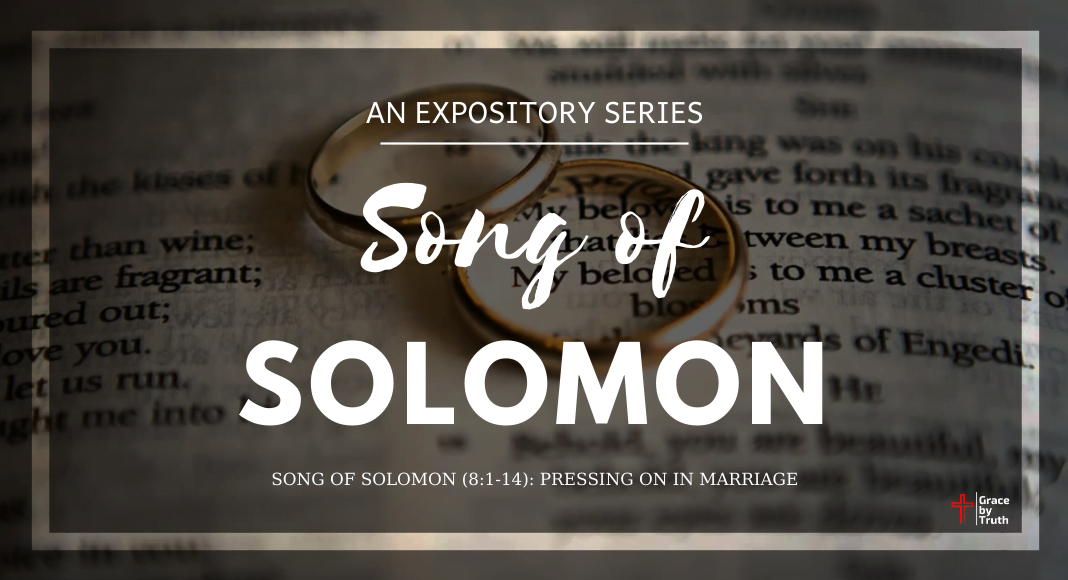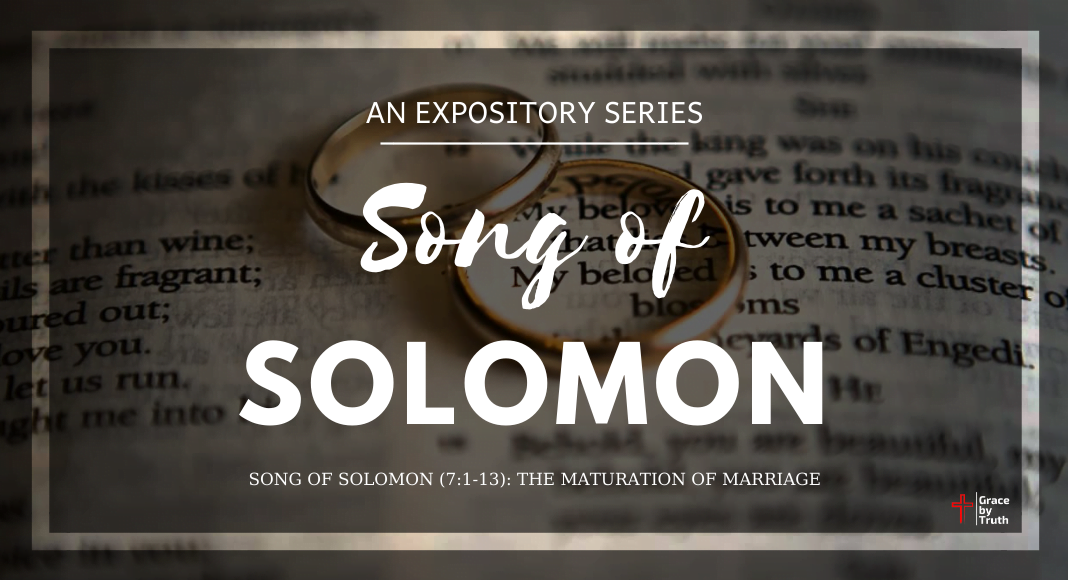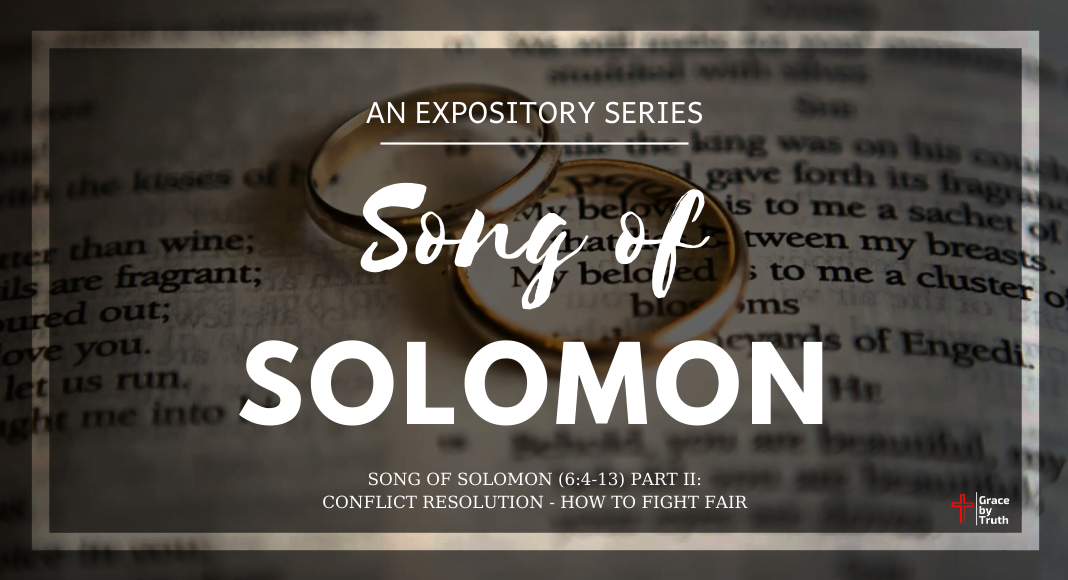Marital Love God’s Way
Song of Solomon 1:9-2:7
Background
Consider if you will, before we begin, the attitude of marriage here in our own country. Overall, Americans are waiting much longer to marry than what they used to. Most of the time, back in the 40’s and 50’s, people would get married relatively young. Now, they’re waiting into their late 20’s or early 30’s before they get married. Unfortunately, with that some trends have developed because of the falling morals in this society.
What do the statistics say?
“65% of American adults believe that living with each other or cohabitation is a good idea. Of those that live together, 84% of those polled do so to test compatibility.”
In other words, do they get along?
So it’s based upon pragmatism. As a matter of fact personal commitment has become second to pragmatism when deciding when to marry. Now if there’s good news in this. The Millennials are actually taking longer to marry than what they used to back in much previous times. The problem is that morally they see nothing wrong as a group or collectively as a group with driving this bar before you get a driver’s license.
God’s View on Marriage
Back in Genesis, God sets the standard for the family unit. Scripture tells us, “For this reason a man shall leave his father and his mother, and be joined to his wife; and they shall become one flesh.” (Genesis 2:24)
This says the standard from the very first man and the very first woman all the way up until the end of time that a family is between one man and one woman.
Unfortunately, again because of the law and the land have been changed now to accept homosexual relationships as legitimate and the falling decline of our moral system and how we regard marriage, we look at the world around us at the massive fallout because of our declining moral system.
We ask the question of why?
Why does society seem to be so evil now? God answers that question. The same was true in the case of Israel, when the Prophet Jeremiah was to go and to call the people back to God. God says, “You too have done evil, even more than your forefathers; for behold, you are each one walking according to the stubbornness of his own evil heart without listening to Me.” (Jeremiah 16:12)
Society as a whole has subjugated God’s moral standards for their own. Just as in the Book of Judges, each doing what is right in his own eyes. But we as believers are not called to live after the world standards, we are called to obey and follow God’s precepts and his commands for marriage and the institution of marriage. If the family breaks down then society breaks down. Moreover, not just for any pragmatic reasons, we will be judged for how we live our lives.
Consider when James says, “So speak and so do as those who will be judged by the law of Liberty.” (James 2:12) Each of us will give an account one day before the Lord Jesus Christ for how we live and the theology we held in our views of marriage.
In that day, when that day comes; what will your answer be?
The Scene
The Song of Solomon, is not a theological book in the sense of providing solely for the instruction of how to marry. What we’re actually looking at is Solomon’s marriage in his younger years. Given the fact that Solomon in his later years appears to contradict many of the things that he does in his younger years, by taking on multiple wives and concubines, his life somewhat turns to turmoil. It’s only at the end of his life when he comes back to his senses as he writes the book of Ecclesiastes that he says, true life and meaning is found in God in fearing him and obeying His commandments.
By looking at Solomon’s love for his young bride Shulamite, there are some things that we can extrapolate from their marriage that can be applied to all married couples. This is broken down into the following three parts.
1. Praising Communication.
2. Physical Communion.
3. Prudent Caution.
Most of what we learned from our interactions with this text we actually learn from Shulamite. In the text, Shulamite definitely talks more than Solomon does.
The context and the content of their conversation involves mutual praise. We see that, in Song of Solomon 1:9-17, they are both engaged in mutually praising each other and they’re communicating. Then in Song of Solomon 2:1-6, we see that there is a physical communion that takes place as well. Then we are given a warning. We see that in Song of Solomon 2:7 in reference to a prudent caution.
It’s interesting to know that it’s not Solomon that gives it. It’s his wife.
Song of Solomon (1:9-2:7) – New American Standard Bible (NASB)
9 “[a]To me, (A)my darling, you are like
My (B)mare among the chariots of Pharaoh.
10 “Your (C)cheeks are lovely with ornaments,
Your neck with strings of (D)beads.”11 “[b]We will make for you ornaments of gold
With beads of silver.”12 “[c]While the king was at his [d]table,
My [e](E)perfume gave forth its fragrance.
13 “My beloved is to me a pouch of (F)myrrh
Which lies all night between my breasts.
14 “My beloved is to me a cluster of (G)henna blossoms
In the vineyards of (H)Engedi.”15 “[f][g](I)How beautiful you are, my darling,
[h]How beautiful you are!
Your (J)eyes are like doves.”16 “[i][j]How handsome you are, (K)my beloved,
And so pleasant!
Indeed, our couch is luxuriant!
17 “The beams of our houses are (L)cedars,
Our rafters, [k](M)cypresses.The Bride’s Admiration
1 “[l]I am the [m](N)rose of (O)Sharon,
The (P)lily of the valleys.”2 “[n]Like a lily among the thorns,
So is (Q)my darling among the [o]maidens.”3 “[p]Like an [q](R)apple tree among the trees of the forest,
So is my beloved among the [r]young men.
In his shade I took great delight and sat down,
And his (S)fruit was sweet to my [s]taste.
4 “He has (T)brought me to his [t]banquet hall,
And his
(U)banner over me is love.
5 “Sustain me with (V)raisin cakes,
Refresh me with [u](W)apples,
Because I am (X)lovesick.
6 “Let (Y)his left hand be under my head
And (Z)his right hand (AA)embrace me.”7 “[v]I (AB)adjure you, O (AC)daughters of Jerusalem,
By the (AD)gazelles or by the (AE)hinds of the field,
(AF)That you do not arouse or awaken my love
Until [w]she pleases.”
Praising Communication (v.1:9-17)
So here in the first opening section of this chapter, we see praising communication. They are talking to each other. It is amazing to me how when people first start dating, they can talk about the most mundane things and than ultimately they get married.
As years go by, silence can be heard in the house for several hours. Even several days. Nothing is even said. There’s nothing in that seems to stir or prod the spouse’s to speak to each other. That tells us something about the importance of communication. Spouses need to communicate with each other.
Communication is not just giving words. Communication is connecting the heart and the mind of each other.
Communication is Important.
There was a lady who went to visit an attorney.
She said, “I want to get a divorce from my husband.”
The attorney looked at her and said, “Well, do you have grounds.”
She said, “What we have is about two acres.”
He said, “No lady, what I mean is does he beat you up?”
She says, “No I get up before he does.”
He said, “No lady, do you have a grudge.”
She says, “Well no, we have a carport.” Frustrating the lawyer, he finally looks and says, “Why do you want to get a divorce.”
She said, “Because we can’t seem to communicate.”
Communication is key.
a. Solomon affirms her physical beauty. (v.9-10)
we see that Solomon is verbalizing and communicating to her. It does a couple of different things. We see in verses 9 and 10 that he affirms her physical beauty. Now she had already said that she didn’t view herself to be all that and a bag chips because she’s been out in the sun working. She understood and was a little insecure about how she looked. But notice what Solomon says. He says, “To me, my darling, you are like My mare among the chariots of Pharaoh.” (Song 1:9-10)
Now, we look back at that and say man how in the world is comparing your wife to a horse something that’s going to be taken as something good. Well, you have to understand the context of what he’s saying. He says, “You are like my mare among the chariots of Pharaoh.”
In Egypt, the white stallions which were used by Pharaoh’s chariots were prized possessions. Moreover, people didn’t use female horses or mares to pull chariots. They used male horses or stallions. What he’s saying is that if you had a bunch of stallions out in a pasture and you wanted to get them to go from point A to point B, you would stick a mare in there and that would cause all of the stallions to lose their minds. Therefore, Solomon is saying that when you walk into a room, I lose my mind. That’s how Shulamite would have taken it.
“In Ancient Egypt… mares were never used to draw chariots. Stallions, hitched in pairs, were the standard motive-power of both war chariots and other royal vehicles… These factors suggest that the comparison here underscores the girl’s attractiveness. A mare loose among royal stallions would create intense excitement. This is the ultimate in sex appeal!”
– G. Lloyd Carr [1]
“Since the royal horses were well ornamented, verses 10 and 11 continue to describe the ornamental beauty of Shulamite in comparison to the royal steeds.”
– Dr. Arnold Fruchtenbaum [2]
So that if you were a Pharaoh, not only that you have these magnificent horses, but they would have been adorned in the most ornate type of jewelry and so forth. Moreover, when he’s talking and comparing his bride as a horse, we tend to look at horses like the cowboys and Indians and do not really view them as magnificent. Solomon however, viewed the magnificence of the horses.
Over in the Book of Kings it tells us that he had several thousand of the finest horses that were on the face of the earth. Moreover, consider what God Himself says about this most magnificent creature.
God Speaking of Horses
“Do you give the horse might? Do you clothe his neck with the mane? Do you make him leap like the locust!? His majestic snorting is terrible. He paws in the valley, and rejoices in his strength; He goes out to meet the weapons. He laughs at fear and is not dismayed; And he does not turn back from the sword. The quiver rattles against him. The flashing spear and javelin. With shaking and rage, he races over the ground, And he does not stand still at the voice of the trumpet. As often as the trumpet sounds he says, ‘Aha!’ And he scents the battle from afar. And the thunder of the captains and the war cry.” (Job 39:19-25)
The rider of the horse is decorated in ornament and the horse shows no fear. When the attack is given, the horse will immediately proceed into the battle. This is what God is saying about this magnificent animal.
This is again, it’s talking about the beauty and the majesty of this creature and this is the comparison that Solomon makes to his bride. So he affirms her physical beauty. But he also affirms again the desire to accentuate that beauty.
b. Solomon affirms his desire to accentuate her beauty. (v.11,15)
Look what he says, “We will make for you ornaments of gold with beads of silver.” (Song 1:11) Now, he had earlier said, “How beautiful you are, my darling. How beautiful you are! Your eyes are like doves.” (Song 1:15) He goes on to say that because he’s making a comparison. He’s talking about how she looks. The things that she’s wearing and what he wants to give to her. He wants to give her gold necklaces with silver beads. She only had pearls, therefore, this was considered to be an upgrade. This was a gift intended to keep with her a status as his wife.
c. Shulamite affirms Solomon’s presence by comparing him to spices. (v.15-14, 16-17)
Shulamite, likewise, also affirms Solomon. But where Solomon keys upon things that are visual, she keys upon things that are pleasing to the senses. Primarily through the nose. Notice what she says. “While the king was at his table, My perfume [nard] gave forth its fragrance, My beloved is to me a pouch of myrrh Which lies all night between my breasts. My beloved is to me a cluster of henna blossoms in the vineyards of Engedi.” (Song 1:12-14)
She’s making these various comparisons, with spiked nard with myrrh and with these henna blossoms. Those of you who have been to perhaps Israel might have smelled the oils of these particular flowers. This by the way is the same perfume that was used in the New Testament when Mary poured this expensive perfume on the feet of Christ and then dried his feet with her hair.
Perfume or Nard in the New Testament
“Jesus, therefore, six days before the Passover came to Bethany where Lazarus whom Jesus had raised from the dead. So they made him a supper there, and Martha was serving; but Lazarus was one of those reclining at the table with Him. Mary than took a pound of very costly perfume of pure nard, and anointed the feet of Jesus and wiped His feet with her hair; and the house was filled with the fragrance of the perfume. But, Judas Iscariot, one of His disciples who was intending to betray Him, said ‘Why was this perfume not sold for three hundred denarii [$40,000 or $3,000 per oz] and given to the poor people?” (John 12:1-5)
So what little bit of perfume she placed upon him soon permeated throughout the entire house. The value of the perfume in today’s economy would roughly be worth $40,000 or what she was using was $3,000 per ounce perfume. This is something of considerable value.
Shulamite is comparing her lover to is something that is to be treasured. Something that is pleasing to the smell, but something that is very costly. She says, “How handsome you are, my beloved, And so pleasant! Indeed, our couch is luxuriant! The beams of our houses are cedars, Our rafters, cypresses.” (Song 1:16-17)
They’re not in a house right now, but what she is doing is visualizing the future. One of their cottages or estates. Remember Solomon was the King of Israel. Its wealth expanded under Solomon as did its borders greater than any extent, than any other King in Israel. So Solomon probably had summer homes, different cottages, where he would take his bride. She makes mention that the beams of the houses are cedars.
She apparently is from Lebanon, which is to the north because cedars and cypresses particularly the cedars were not from the area of Jerusalem. They had to be transported from her hometown. Therefore, what she’s saying is Solomon made her feel at home by having a home constructed with something that she would have been very familiar. That’s how much he cared about her.
Physical Communion (v.2:1-6)
There was praising communication, but there was also physical communion. Notice what she said, “I am The Rose of Sharon, The lily of the valleys.” (Song 2:1) Often a reference we made to the Lord Jesus Christ in our hymns. What is interesting is as she begins to make this, Solomon interrupts her. He says, “Like a lily among the thorns, So is my darling among the maidens.” (Song 2:2) Solomon is elevating her. He says you are like a lily among the thorns. You’re saying that you’re a lily among lilies, but I’m saying you’re a lily among thorns that the other lilies are thorns in comparison to you.
It appealed to her because in the very next verse she says, “Like an apple tree among the trees of the forest, So is my beloved among the young men. In his shade I took great delight and sat down, And his fruit was sweet to my taste. He has brought me to his banquet hall, And his banner is over me is love.” (Song 2:3-6)
All of these are our words and we’re not gonna get in descriptive detail, but all of these are reflective of the physical lovemaking that is occurring. She says refresh me with apples because I’m lovesick. Which means she’s ready to go. Let the let his left hand be under my head and his right hand embrace me. And why is that?
Shulamite is made to feel.
Well these three things can be taken from the statements she made. Why she is so open now to physical intimacy?
1. Protected – She rested in the shade of the apple tree.
She rested in the shade of the apple tree. Solomon is an apple tree. apple trees don’t grow and is probably something more akin to a pomegranate or another fruit. Most likely not an apple although it’s been translated as such. She rested in the shade of this apple tree in the middle of the day.
2. Loved – Personal knowledge through physical intimacy.
Not just love in the sense of agape love, but she’s made to feel loved in the sense of personal knowledge through physical intimacy.
3. Recognized – Everyone knew she was Solomon’s wife in public because of his behavior around her. She was his lily among thorns (among other women).
She says that Solomon’s banner is over her. In other words, Solomon’s not afraid to go public with this woman. When they go out in public he doesn’t walk in front of her, elevating himself. She doesn’t walk in front of him so that she’s looking down on him. They walk side by side and everybody knows that. She was his lily among the thorns.
Quite literally here, what Solomon is saying is that he is a one woman man. Now he will not continue to be that way as he begins to get corrupted later on in life. But at least at this point in his life, as a young king with this young bride, he used her as a lily among a nation of thorns.
According to God’s standards, what we find that we can learn particularly from this is that there is communication between the husband and wife. It fosters a strong marriage. There is physical communion that fosters this strong marriage. But then we come across at the end, a prudent caution.
Prudent Caution (v.2:7)
Though Solomon was the wisest person apart from the Lord Jesus Christ who had ever lived, it is not him is who is about to make the following comment in reference to a warning.
Sexual intimacy has a time and place but not before one is married.
Consider what Shulamite says, “I charge you, O daughters of Jerusalem, By the gazelles or by the does of the field, Do not stir up nor awaken love Until it pleases.” (Song 2:7)
In other words, don’t push yourself to engage in relationships where ultimately you would succumb to being involved sexually with someone before it’s time. Now she doesn’t dictate when that time is. She doesn’t say, now here’s the proper time. We have to search the whole of the Scriptures to know and discern when that is.
“The admonition is do not allow your natural, youthful sexual desires to be quickly inflamed. Do not rush into a sexual encounter like an innocent gazelle is flushed from a thicket. Do not awaken sexual passions before they can be rightly expressed within the marriage relationship.”
– Tommy Nelson [3]
Note: Any sexual relationship outside the confines of marriage (man and woman) is sin.
I never thought I would have to emphasize that every time I talk about marriage now. But given the cultural climate, it has to be stipulated that the biblical mandate for marriage is between one man and one woman. Not between two people of the same sex. Anything apart from that, that is the ideal marriage, as God defines it, is sin.
The term for it in the Greek New Testament is the word [porneia] from where we get our English word pornography. It is any sexual behave or act committed outside of a marriage relationship between the husband and wife who were married and to each other.
In case someone were to say well what if they have a married person engaged in a sexual relationship with another married person. Well that’s adultery. That’s not what I’m saying, though I am saying that. But the Lord himself said that. Jesus said, “And I say to you, whoever divorces his wife, except for [sexual immorality or the word porneia] and marries another woman commits adultery.” (Matthew 19:9)
Sexual Immorality – Porneia
- Any sexual behavior or act committed outside of a marriage relationship between a husband (male) and wife (female), who are married to each other.
- Sexual immorality also includes any sexual behavior or act before one is married.
Points to Ponder
So what are some of the things I think that we could take away from this admonition as well as what we find in the text Song of Songs?
1. Marriage is made to enjoy. Engage in activities together that enhance your relationship.
What husbands and wives need to do is to engage in activities together that enhance the relationship. That’s how you keep the flame of passion alive in marriage. Do things together.
2. Be sensitive to your spouse’s insecurities. Nothing will make your spouse feel greater than when they know you are their first priority.
We see that in the way that Solomon talks about his wife. She felt insecure because she had worked out in the sun. Her skin was somewhat probably damaged. They didn’t have sunscreen back in those days. Whatever it was, she was aware of how people perceived her. Solomon immediately put her at ease.
3. If single, avoid situations that will excite sexual passions. Marriage is the only arena for lawful sexual engagement.
By lawful action, I mean biblical sexual engagement.
BIBLIOGRAPHY
[1] G. Lloyd Carr, Song of Solomon: An Introduction and Commentary, Book 19. Tyndale Old Testament Commentaries (Downers Grove, IL: Inter-Varsity Press).
[2] Arnold Fruchtenbaum, Biblical Lovemaking: A Study of the Song of Solomon (Tustin, CA: Ariel Ministries Press, 1983).
[3] Tommy Nelson, The Book of Romance: What Solomon Says About Love, Sex, and Intimacy (Nashville: Thomas Nelson, 1998).
FOOTNOTES:
[a] Song of Solomon 1:9 Lit I have compared you to
[b] Song of Solomon 1:11 CHORUS
[c] Song of Solomon 1:12 BRIDE
[d] Song of Solomon 1:12 Or couch
[e] Song of Solomon 1:12 Lit nard
[f] Song of Solomon 1:15 BRIDEGROOM
[g] Song of Solomon 1:15 Lit Behold
[h] Song of Solomon 1:15 Lit Behold
[i] Song of Solomon 1:16 BRIDE
[j] Song of Solomon 1:16 Lit Behold
[k] Song of Solomon 1:17 Or junipers
[l] Song of Solomon 2:1 BRIDE
[m] Song of Solomon 2:1 Lit crocus
[n] Song of Solomon 2:2 BRIDEGROOM
[o] Song of Solomon 2:2 Lit daughters
[p] Song of Solomon 2:3 BRIDE
[q] Song of Solomon 2:3 Or apricot
[r] Song of Solomon 2:3 Lit sons
[s] Song of Solomon 2:3 Lit palate
[t] Song of Solomon 2:4 Lit house of wine
[u] Song of Solomon 2:5 Or apricots
[v] Song of Solomon 2:7 BRIDEGROOM
[w] Song of Solomon 2:7 Or it
CROSS REFERENCES:
(A) Song of Solomon 1:9 : Song 1:15; 2:2, 10, 13
(B) Song of Solomon 1:9 : 2 Chr 1:16, 17
(C) Song of Solomon 1:10 : Song 5:13
(D) Song of Solomon 1:10 : Gen 24:53; Is 61:10
(E) Song of Solomon 1:12 : Song 4:14; Mark 14:3; John 12:3
(F) Song of Solomon 1:13 : Ps 45:8; John 19:39
(G) Song of Solomon 1:14 : Song 4:13
(H) Song of Solomon 1:14 : 1 Sam 23:29
(I) Song of Solomon 1:15 : Song 1:16; 2:10, 13; 4:1, 7; 6:4, 10
(J) Song of Solomon 1:15 : Song 4:1; 5:12
(K) Song of Solomon 1:16 : Song 2:3, 9, 17; 5:2, 5, 6, 8
(L) Song of Solomon 1:17 : 1 Kin 6:9, 10; Jer 22:14
(M) Song of Solomon 1:17 : 2 Chr 3:5
(N) Song of Solomon 2:1 : Is 35:1
(O) Song of Solomon 2:1 : Is 33:9; 35:2
(P) Song of Solomon 2:1 : Song 5:13; 7:2; Hos 14:5
(Q) Song of Solomon 2:2 : Song 1:9
(R) Song of Solomon 2:3 : Song 8:5
(S) Song of Solomon 2:3 : Song 4:13, 16; 8:11, 12
(T) Song of Solomon 2:4 : Song 1:4
(U) Song of Solomon 2:4 : Ps 20:5
(V) Song of Solomon 2:5 : 2 Sam 6:19; 1 Chr 16:3; Hos 3:1
(W) Song of Solomon 2:5 : Song 7:8
(X) Song of Solomon 2:5 : Song 5:8
(Y) Song of Solomon 2:6 : Song 8:3
(Z) Song of Solomon 2:6 : Song 8:3
(AA) Song of Solomon 2:6 : Prov 4:8
(AB) Song of Solomon 2:7 : Song 3:5; 5:8, 9; 8:4
(AC) Song of Solomon 2:7 : Song 1:5
(AD) Song of Solomon 2:7 : Prov 6:5; Song 2:9, 17; 3:5; 8:14
(AE) Song of Solomon 2:7 : Gen 49:21; Ps 18:33; Hab 3:19
(AF) Song of Solomon 2:7 : Song 3:5; 5:8, 9; 8:4
ABOUT
Grace by Truth is known for delivering the precise and deep study of biblical truth in service to each other and the church.
CONTACT
CURRENT STUDY
MORE FROM SONG OF SOLOMON
Song of Solomon (8:1-14): Pressing On in Marriage
Pressing On in Marriage Song of Solomon 8:1-14 I. Grow in love. (v.1-4) A. Shulamite’s desire is to be able to show public affection for Solomon. (v.1) - “[Shulamite] is not wishing that they were literally b-rother and sister, but that they had the freedom of...
Song of Solomon (7:1-13): The Maturation of Marriage
The Maturation of Marriage Song of Solomon 7:1-13 I. The Lover’s Dance (v.1-9) A. Solomon describes Shulamite’s features (v.1-7). - This section portrays the maturing of the couple’s marriage. The progress in their love is revealed in two ways. First, the imagery in...
Song of Solomon (6:4-13) Part II: Conflict Resolution – How to Fight Fair
Conflict Resolution – How to Fight Fair (Part II) Song of Solomon 6:4-13 I. Focus on positive communication (v.4-9) A. He extols her physical beauty (v.4) B. He values her and forgives her (v.5-7) - “Solomon still treats her the same, showing his love for her is not...



